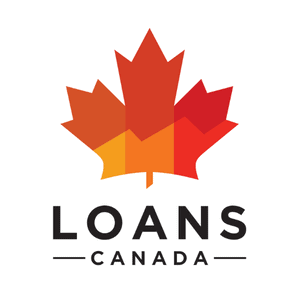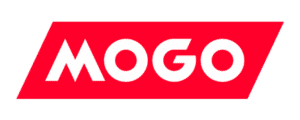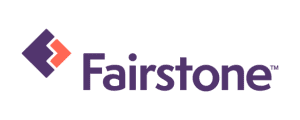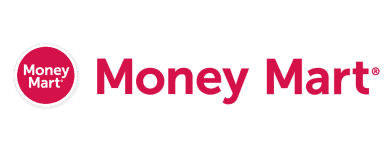Best Personal Loans In Canada 2026
Personal loans are one of the most popular financial tools among Canadian consumers. They offer the opportunity to cover a wide variety of debt and expenses, from unexpected travel to unfortunate car issues.
While finding a personal loan that best meets your unique needs may seem difficult, there’s a large selection of lenders you can choose from. Keep reading for everything you need to know about the best personal loan options in Canada and how to choose the best fit for your finances.
Where Can You Get The Best Personal Loans In Canada?
Filters
- Amount
- Up to $35,000
- Rate
- 9.99% – 34.95%
- Term
- 6 – 84 Months
- Amount
- Up to $60,000†
- Rate
- 19.99% – 34.99%*
- Term
- 6 – 120 months
- Amount
- $500 – $10,000
- Rate
- Up to 34.99%
- Term
- Up to 60 months
Best Personal Loan Providers
Several personal loan providers are available across Canada. Here’s a look at our top picks:

Loans Canada
Loans Canada is Canada’s first and largest online loan comparison platform that helps Canadians find and compare lenders and financing solutions. Since its inception in 2012, the digital service has been connecting borrowers across Canada with its vast network of top-rated lenders. Consumers can quickly compare lenders and their offerings, narrow down the best deal, and complete an online loan application.
Loans Canada also offers a plethora of educational resources on personal finance and various lending solutions, helping Canadians make more informed borrowing decisions and better handle their finances.
Best For: Finding And Comparing Lenders And Loan Products
Loans Canada is a great time-saver thanks to its cutting-edge and user-friendly online loan comparison platform. Simply enter a few pieces of information about your financial situation and the type of financing you’re looking for, and Loans Canada will quickly populate a list of lenders that match your needs. Then, pick a lender and apply, all from one convenient website.
Loans Canada Pros
- Convenient And Time-Saving – Rather than spend time visiting individual lender websites to find different loan solutions and compare interest rates, you can do all that in one place with the innovative Loans Canada platform.
- Low Rates – Depending on your credit score and the loan product, you may qualify for rates starting as low as 9.99%.
- Wide Range Of Loan Products – Find all sorts of personal finance products, including personal loans, lines of credit, credit cards, and mortgages.
Loans Canada Cons
- Not A Direct Lender – Loans Canada doesn’t directly provide loans, but rather connects borrowers and lenders.

Spring Financial
Headquartered in Vancouver and founded in 2015, Spring Financial is a fintech firm that provides unsecured loans up to $35,000 and a credit-building program that helps consumers establish a positive credit profile and save money.
They’re best suited for individuals who have struggled to access credit with traditional lenders due to poor credit or other financial issues. Even if you can’t immediately qualify for a loan with Spring Financial, you’re guaranteed approval for their Foundation program, which helps you build credit and save money.
Best For: User Experience
Spring Financial is best known for its user experience due to its fully online process that allows you to apply and manage your loan online. The online application process is also known to be very quick, with funding available within 1-2 business days.
Spring Financial Pros
- Fast Funding – You can get your funds as early as the same day you’re approved for the loan via e-transfer.
- Flexible Terms – Interest rates for Spring Financials unsecured personal loans start as low as 9.99% and come with repayment terms up to 78 months.
- All Credit Types Accepted – Spring Financial works with individuals with all types of credit.
- Credit-Building Program – The Foundation program not only helps you build credit and save money, but upon completion of the program, you’re guaranteed approval to Spring Financial’s Evergreen Loan.
- No Prepayment Penalty – You’re free to repay the loan off at any time without penalty.
Spring Financial Cons
- High Interest Rates – Depending on your financial profile, you can be charged rates up to 35%.
- No Upfront Funding – The Foundation program doesn’t provide upfront funding.

iCash
iCash is a payday lender that offers payday loans up to $1,500. You can access these quick, small loans to cover last-minute expenses, with no documentation required before the transfer of funds.
Loan applications can be completed within a couple of minutes, with approval to come within moments if all checks out, thanks to the platform’s innovative and automated approval system.
Best For: Small Lending Needs
iCash is ideal for consumers who simply need a quick cash fix to cover a small yet pressing expense. You can get your hands on the funds requested within hours, making this ideal for last-minute expenses to tie you over until your next paycheque.
iCash Pros
- Online Application Process – Apply from wherever you are by simply providing a few pieces of information about yourself and your financial profile.
- Fast Approvals – Get approved within moments of applying thanks to iCash’s automated approval system.
- Fast Funding – Get access to your borrowed funds within minutes of approval via Interac e-Transfer.
iCash Cons
- High Interest Rates – You could be paying a lot of money in interest over the loan term due to very high rates.
- Short Repayment Period – iCash loans may be difficult to repay in such a short period of time.

Fora Credit
Fora Credit is an online lender that offers personal lines of credit up to $15,000. You can withdraw funds from your available credit whenever you need to, and you’ll only be charged interest on what you use, making Fora’s credit line very flexible.
Interest rates are relatively competitive at 19.9%, making Fora Credit a potentially more cost-effective option compared to other similar financial options.
Best For: Flexible Funding
If you find yourself often in need of an extra bit of cash, then a Fora line of credit may be suitable. Rather than applying for multiple loans every so often, you’ll have up to $15,000 in credit available to you immediately. All that’s needed is a quick withdrawal, and you’ll only pay interest on the amount borrowed.
Fora Pros
- Flexible Access To Funds – Tap into your credit line whenever the need for extra cash arises.
- 100% Online – The entire application, approval, and funding processes take place online.
- Only Pay Interest On Withdrawn Funds – You’ll only be charged interest on the funds withdrawn, so you only pay for what you need.
Fora Cons
- Not Available In All Provinces – You must be located in BC, Alberta, Saskatchewan, Ontario, New Brunswick, or Nova Scotia to get a line of credit from Fora.
- High Interest Rates – While Fora offers rates as low as 19.9%, you’ll need to have good credit to access this rate. Otherwise, rates can be as high as 34.9%.

Mogo
Mogo is a digital financial firm that offers a line of credit of up to $5,000. Mogo’s credit line serves as a more flexible alternative to traditional personal loans that allow you to access funds when you need it and control your payments.
The application process can be completed online in a few short minutes with no negative effect on your credit. Plus, there’s a 100-day guarantee if you’re not satisfied, making Mogo a low-risk way to borrow.
Best For: Flexible Alternative To Payday Loans
The Mogo line of credit is suitable for borrowers who need quick access to cash but want something with a higher loan amount and more flexibility compared to a payday loan. If you have bad credit, need cash fast, and prefer flexible repayment options, then a Mogo line of credit may be worth considering.
Mogo Pros
- Payments Are Interest And Fees Only – Only minimum payments are required each month to cover the interest, providing you with flexibility to repay your funds based on your financial comfort level.
- Flexible Repayment – You can pay back what you withdraw at any time, and you won’t be charged any early repayment penalty fees.
- Same-Day Funding – Get access to your borrowed funds shortly after you’re approved and your credit line is set up.
- 100-Day Money-Back Guarantee – Take your line of credit for a test drive for 100 days to make sure you’re satisfied. If not, you can take advantage of the money-back guarantee.
Mogo Cons
- Interest Rates Are Very High – The interest rate for a Mogo line of credit is very high at 34.37%.
- Not Available Everywhere – Mogo’s line of credit is only available in BC, Alberta, Manitoba, Ontario, New Brunswick, Nova Scotia, and PEI.

Fairstone
Fairstone is a non-bank lender in Canada that offers unsecured loans up to $25,000 and secured loans up to $60,000.† If you’re a homeowner with enough equity in your home, you may be able to access larger loan amounts with lower rates, making your loan more affordable with better terms.
Funds can be used for just about anything, including home improvements, urgent expenses, and debt consolidation.
Best For: Secured And Unsecured Loans
If you have collateral to back your loan, consider a loan from Fairstone. With a valuable asset in hand, you can increase your chances of getting a loan at an affordable interest rate and favourable terms. And with loan terms up to 10 years, you’ll have plenty of time to repay what you borrow.
Fairstone Pros
- High Loan Amounts (With Collateral) – Depending on the value of your collateral, you can access as much as $60,000 to cover large expenses.
- Flexible And Long Loan Terms – You can choose a variety of loan terms up to 10 years, giving you plenty of time to repay what you borrow.
- Hundreds Of Physical Locations – If you prefer to work with a lender face-to-face, you’ll have hundreds of brick-and-mortar locations across Canada to visit.
Fairstone Cons
- High Interest Rates – Without security, you could be charged up to 29.99%* on your borrowed funds.
- Collateral Required For Higher Loan Amounts – Security is also needed to access larger loan amounts.

Money Mart
Money Mart is an alternative lender that offers payday loans up to $1,500 and installment loans up to $25,000. Loans are available both online and in-store at one of over 360 physical branches across Canada.
Money Mart is known for their user-friendly financial services and same-day cash funding, making this lender suitable for borrowers who need fast cash and don’t have the credit profile to qualify with traditional lenders.
Best For: Bad Credit Borrowers
If you have bad credit that’s standing in the way of getting a loan from a traditional lender, Money Mart can help. Apply either online or in-store to get fast funding up to $25,000.
Money Mart Pros
- Fast Approval And Funding – Get approved and funded on the same business day.
- Established Lender – Money Mart has been around since 1982, making them a well-established and trusted small loan lender in Canada.
- Available In Store And Online – There are hundreds of physical Money Mart locations across Canada for those who wish to deal with lenders in person or prefer to access their borrowed funds in cash.
Money Mart Cons
- High Interest Rates – You could be charged upwards of 34.38% interest on your loan.
- Short Repayment Periods – Payday loans may be difficult to repay in a short period of time.

Cash Money
Cash Money is a fintech firm in Canada that offers payday loans for up to $1,500, auto equity loans for up to $10,000, and lines of credit for up to $10,000. For over 30 years, the lender has been making financial products accessible to those who struggle to qualify for traditional financing.
Whether you need a few thousand dollars to cover a bigger expense or simply need a small loan to tie you over until payday, a financing solution from Cash Money may be what you need.
Best For: Short-Term Financing
Cash Money is suitable for borrowers who need short-term financing and quick access to cash. Funding can be made available in as little as 24 hours. And if you have bad credit, you may still qualify, as long as you can demonstrate a steady income.
Cash Money Pros
- Flexible Financing Solutions – Choose between payday loans, lines of credit, and auto equity loans with Cash Money.
- Fast Approval And Funding – Get approved for your loan and access to your borrowed money within 15 minutes via Interac e-Transfer.
Cash Money Cons
- High Interest Rates – Auto equity loans and credit lines come with rates as high as 34.99%, and payday loans cost up to $14 per $100 borrowed.
- Not Available Everywhere – Cash Money is only available in BC, Alberta, Saskatchewan, Ontario, and Nova Scotia.

Bree
Bree is an online financial platform that offers cash advances of up to $750 with no mandatory fees, no interest, and no credit checks. With quick access to a few hundred dollars at no cost, you can bridge the gap between paycheques and avoid NSF fees when your bank account is a little short.
Best For: Small Cash Advances With No Interest
If you’re simply looking for a small cash fix to cover a bill or two before your next payday but don’t want to pay additional interest, then a Bree cash advance may be right for you. With up to $750 available interest-free and with no mandatory fees, you can tap into a little bit of extra money without racking up your debt.
Bree Pros
- No Fees – There are no mandatory fees on Bree’s cash advances.
- Interest-Free – You can borrow up to $750 without interest, saving you money.
- No Credit Checks – Bad credit is acceptable, as Bree won’t conduct a credit inquiry.
Bree Cons
- Small Loan Amounts – Bree’s cash advances may not be suitable for more significant financial needs.
- Does Not Help Build Credit – Payments made to repay your cash advances aren’t reported to the credit bureaus, so it’s not a tool that can be used to build good credit.

Nyble
Nyble is an online financial service that provides small lines of credit of up to $250 with no interest, no credit check, and immediate availability of funds. With timely payments, you can also use the Nyble credit line to build good credit.
You can even use Nyble to keep tabs on your credit score, earn reward points with credit score improvements, and access handy tools like credit monitoring and digital identity theft protection.
Best For: Small Credit Lines And Credit Building
Nyble makes a great option for those looking for a few extra hundred dollars without the nuisance of paying interest on what you borrow. Plus, you can use a Nyble credit line to build positive credit with every on-time payment reported to the credit bureaus.
Nyble Pros
- No Credit Checks – Nyble does not conduct a credit check, so you won’t have to worry about your bad credit score getting in the way of obtaining financing.
- No Interests – Withdraw from your Nyble credit line without paying interest on the funds withdrawn.
- Build Positive Credit – On-time payments can be used to build good credit.
Nyble Cons
- Short Repayment Term – The first payment is due 31 days after you withdraw your funds.
- Low Credit Limit – Only $250 is available.

SkyCap Financial
SkyCap Financial is a personal loan provider that caters to borrowers who may not qualify for traditional bank loans. Since 2013, SkyCap Financial has been empowering consumers to take charge of their financial profiles by providing alternative financing solutions. They offer short-term loans, ranging from $500 to $100,000, with quick approvals and funding shortly after.
Borrowers benefit from a quick and streamlined application process and a team of experts committed to ensuring a smooth lending experience. SkyCap Financial assesses applicants based on income, financial stability, and credibility, making it easier for all Canadians, including those with credit issues, to access loan options.
Best For: Higher Loan Amounts
If you’re looking for a more substantial loan but struggle to qualify with a traditional lender, a loan from SkyCap Financial may be suitable for you. With loan amounts as high as $100,000 and lower credit scores accepted, you can get your hands on a significant amount of money to cover larger expenses without jumping through hoops to qualify with the bank.
SkyCap Financial Pros
- Quick funding – If approved, you can get your funds via direct deposits within 24 hours.
- Flexible loan amounts – Whether you’re looking for a small or large loan, you can apply for a loan as little as $500 or as much as $100,000.
SkyCap Financial Cons
- High interest rates – While your can get interest rates as low as 8.99%, if your credit and/or finances are bad, you can be charged rates as high as 35%.

LoanMeNow
LoanMeNow is a short-term loan provider that offers quick and convenient access to small loans up to $1,000, with no credit check required. Approved funds can be deposited right into your bank account within 24 hours, making it an ideal solution if you need the cash urgently before payday.
Whether you need emergency funding or a quick financial fix before your next paycheque, LoanMeNow’s streamlined approval process and quick funding times ensures you get the money you need today to help keep your finances in check.
Best For: Quick Funding For Bad Credit Borrowers
If you’re looking for a quick and easy way to bridge the gap between a pressing expense and your next paycheque, then a small loan from LoanMeNow may be something to consider. The application process is quick and simple, and involves no credit check, so you don’t have to let your credit issues stand in the way of accessing a much-needed loan.
LoanMeNow Pros
- Fast approvals and funding – With this lender you can get short-term financial assistance within 24 hours.
- No credit check required – Not only does LoanMeNow have a simple application process, it does not require any credit checks.
LoanMeNow Cons
- High interest rates – LoanMeNow charges an interest rate of up to 32%.
How To Choose The Best Personal Loan Companies In Canada
Check Your Credit And Finances
By checking your credit and current income and debt obligations, you’ll be better able to assess which lender’s minimum requirements you meet. That way, you can apply with lenders with whom you have the best chance of approval.
Find The Right Lender By Comparing Features
Most lenders will provide a pre-approval, which you can use to compare loan offers. Be sure to check the following:
Interest Rate
The interest rate you’re charged will impact your personal loan cost. The higher the interest rates, the more you’ll need to pay back.
To illustrate the impact of the interest rate on a loan, let’s compare two different rates on the same loan amount, using the same term:
- Loan amount: 10,000
- Loan term: 5 years
| 5% Rate | 8% Rate | |
| Monthly Payment | $188.71 | $202.76 |
| Total Interest Paid | $1,322.74 | $2,165.84 |
| Total Loan Cost | $11,322.74 | $12,165.84 |
As you can see, you’ll pay a little more each month with an 8% rate versus a 5% rate. But the biggest difference comes down to the amount of extra interest you’d pay over the entire loan term as a result of a higher rate. In this case, you’d pay $843.10 more in interest over the loan term with a rate of 8% compared to a 5% rate.
Fees
Most personal loans come with a variety of fees, including origination fees, NSF fees, early payment fees, administrative fees, loan insurance, etc.
- Loan Insurance: This type of coverage helps borrowers repay or reduce their loan balance in case of unexpected events, such as job loss, illness, disability, or death. In any of these cases, loan payments will continue to be made to avoid default.
- NSF Fees: Non-Sufficient Funds are fees applied when you don’t have enough money in your bank account to cover a transaction, like a cheque, bill payment, or pre-authorized debit.
- Loan Origination Fees: These are fees charged by lenders for processing and approving loan applications.
- Early Repayment Fees: Prepayment penalties may be charged by lenders when a borrower pays off a loan before the end of the loan term. These fees allow lenders to recoup the interest they would have earned over the entire loan term.
Loan Term
The longer your loan term, the smaller your payments will be, however, it also leads to more interest paid over the life of the loan. Similarly, shorter terms mean higher payments but lower interest throughout the loan.
To illustrate how a loan term can affect the cost of a loan, let’s compare two different terms on the same loan amount, assuming the same interest rate:
- Loan amount: $10,000
- Interest rate: 6%
| 3-Year Term | 6-Year Term | |
| Monthly Payment | $304.22 | $165.73 |
| Total Interest Paid | $951.90 | $1,932.48 |
| Total Loan Cost | $10,951.90 | $11,932.48 |
Repayment Options
Most lenders offer monthly (12 payments per year), weekly (52 payments per year) and bi-weekly (26 payments per year) payments. Choose a lender who offers a payment frequency that best meets your needs. Similarly, if you plan on paying off the loan early, be sure to ask if there are any pre-payment options.
Reputation
Before choosing a lender, check their reviews online to ensure they are a reputable company. Sites like Trustpilot and the Better Business Bureau (BBB) can give you some insight into what the lender may be like to work with based on what others have to say about them.
Application Process
While most lenders offer an online application, the time, documentation, and process can vary. Be sure the evaluate the requirements before applying.
| Pro Tip: Instead of individually applying with multiple lenders, use Loans Canada to save time and receive multiple loan offers with a single application. |
How To Calculate Your Personal Loan Cost
The total cost of your personal loan will be affected by several factors including your interest rate, loan amount, and term length. To calculate your personal loan payments and total cost, use this personal loan calculator.
How To Increase Your Chances Of Qualifying For The Best Personal Loan In Canada
If you’re looking to increase your odds of approval for the best personal loan in Canada, there are a few things you can do.
- Add Collateral – As previously mentioned, collateral reduces the lenders’ lending risk. As such, they are more willing to provide a loan when you offer an asset as collateral.
- Get A Cosigner – A cosigner is someone who takes responsibility for your loan in the event you’re unable to make your loan payments. Like collateral, this provides your lender with additional security. As such, you can get a loan more easily, if you get a cosigner for your loan.
- Improve Your Credit Score – Your credit score can greatly impact your creditworthiness. The higher your credit score, the more likely you’ll qualify for a personal loan with the best interest rate and terms.
- Pay Down Current Debts – Before applying, consider paying down some of your debts to help reduce your DTI ratio, a common factor used by lenders when checking eligibility.
What Is A Guarantor Loan And How Can It Help You?
If you’ve applied for a personal loan in the past but your application was denied due to your bad credit, there is another loan option that might work out better for you. It’s known as a “guarantor loan” and involves finding a cosigner before applying.
A co-signer is an individual who agrees to take responsibility for the loan in the event you default. Having someone co-sign your loan not only reduces the risk for the lender but also gives you a higher chance of approval and the ability to secure a lower interest rate.
With a guarantor loan, your own bad credit will no longer be an issue during the application process. Instead, your approval will hinge on your cosigner’s credit health. Ideally, your cosigner would need to have good credit and a decent income. However, it’s important to be aware that the co-signer is fully responsible for the debt if you fail to pay it back. Both you and the co-signer must be aware of this.
Learn more: How To Get A Guarantor Loan In Canada
Get The Personal Loan You Want
If you’re interested in applying for a personal loan or are simply looking for more information, we can help. Click the button below to fill out an application to see what your options are.
Personal Loan FAQs
Can I get a personal loan without a credit check?
What documents do I need to apply for a personal loan?
What interest rate can I get with a personal loan?
How do I increase my odds of qualifying for a personal loan?
How do I get a 100% guarantee approval for my personal loan?
What company is best for a personal loan?
Is 7% a good rate for a personal loan?
Can you get a personal loan with a variable interest rate?
®Fairstone Financial Inc. is a wholly owned subsidiary of Fairstone Bank of Canada.
*Interest rates are subject to change. Actual Annual Percentage Rate (APR) varies based on the province of residence and individual factors like credit details and loan amount. The interest rate on an unsecured personal loan is 31.99% in BC.
†On approved credit. Terms and conditions apply. Interest rates vary by province/territory and from customer to customer based on factors like credit score and borrowing history. See Fairstone’s website for details.
Fairstone Financial Inc. holds high-cost credit licenses in AB, MB (License #85047, expiring 20-02-2026) and QC; it has applied for a high-cost credit grantor license in NL. For license information by province, visit Fairstone.ca/HCCG
In Ontario, Fairstone Financial Inc. is licensed as mortgage brokerage 10821.
In Nova Scotia, Fairstone Financial Inc. is licensed as mortgage lender #2021-3000028.

